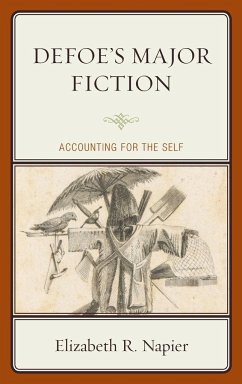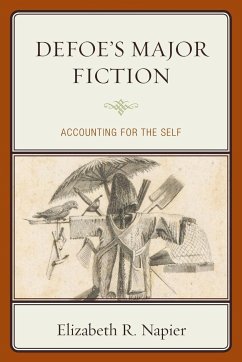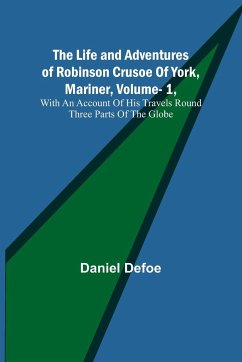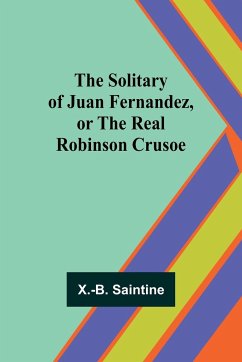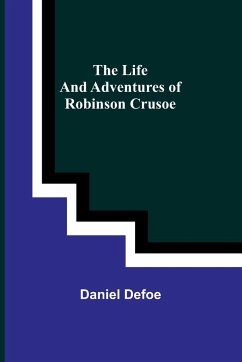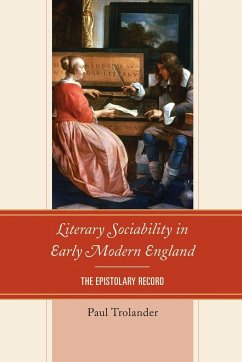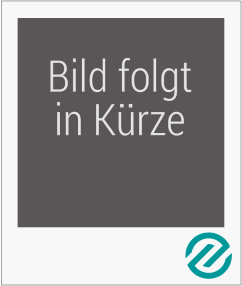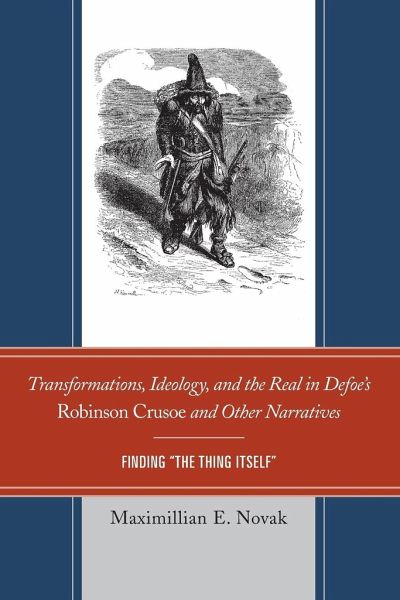
Transformations, Ideology, and the Real in Defoe's Robinson Crusoe and Other Narratives
Finding The Thing Itself
Versandkostenfrei!
Versandfertig in 1-2 Wochen
55,99 €
inkl. MwSt.
Weitere Ausgaben:

PAYBACK Punkte
28 °P sammeln!
By 1719, the year in which Daniel Defoe published The Life and Strange Surprizing Adventures of Robinson Crusoe, he had been writing for three decades on England’s political, social, and economic problems. Defoe was anything but a novice in writing fiction, having made short narratives the hallmark of his journalistic style, but in turning himself into a writer of novel-length fiction over the next five years, he had to explore ways of knitting his fictions together through patterns of language, imagery and intellectual play, while subtly injecting into these works his unique way of seeing t...
By 1719, the year in which Daniel Defoe published The Life and Strange Surprizing Adventures of Robinson Crusoe, he had been writing for three decades on England’s political, social, and economic problems. Defoe was anything but a novice in writing fiction, having made short narratives the hallmark of his journalistic style, but in turning himself into a writer of novel-length fiction over the next five years, he had to explore ways of knitting his fictions together through patterns of language, imagery and intellectual play, while subtly injecting into these works his unique way of seeing the world. This book establishes the complexities and originality of Defoe as a writer of fiction.





